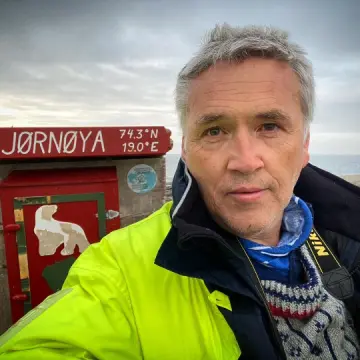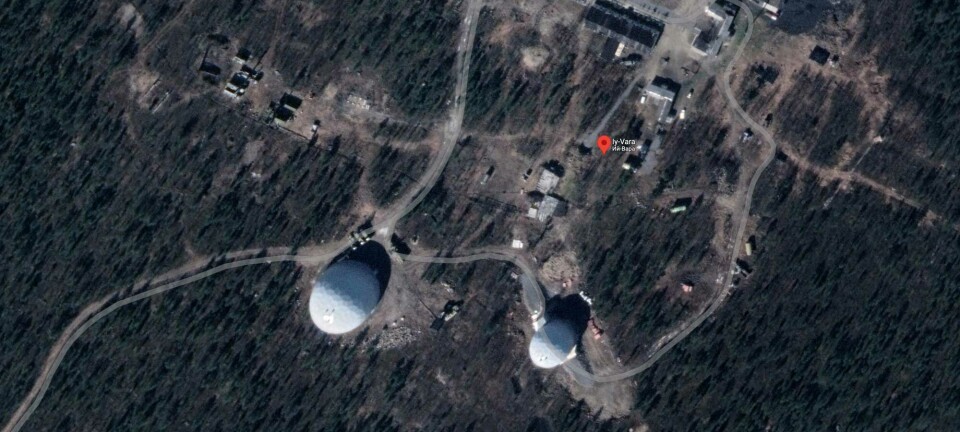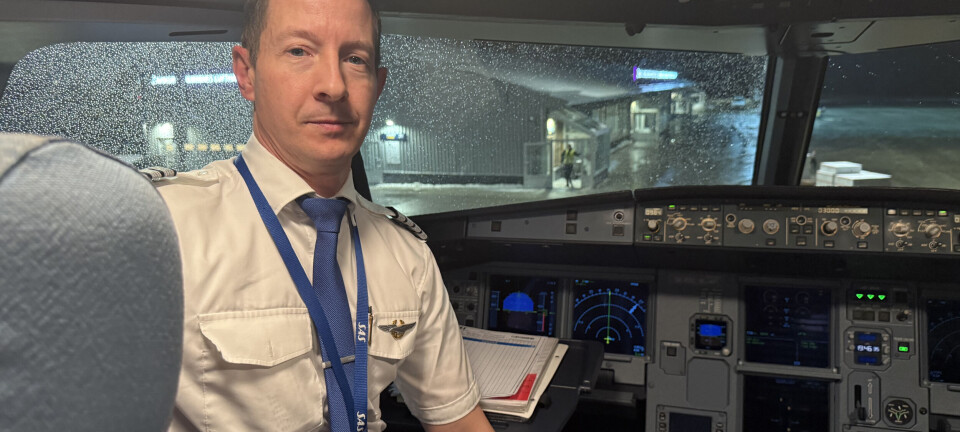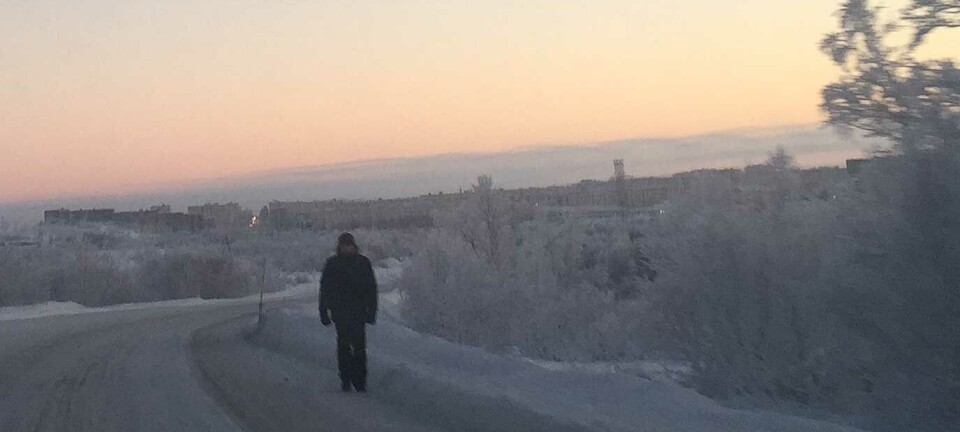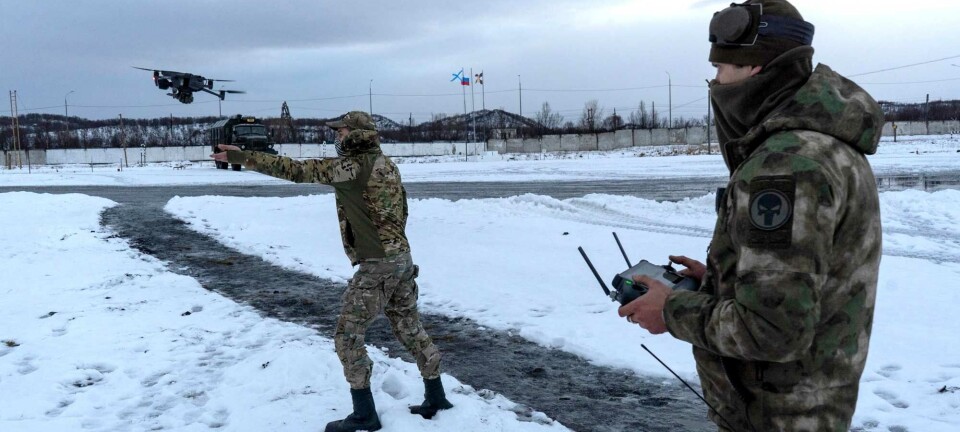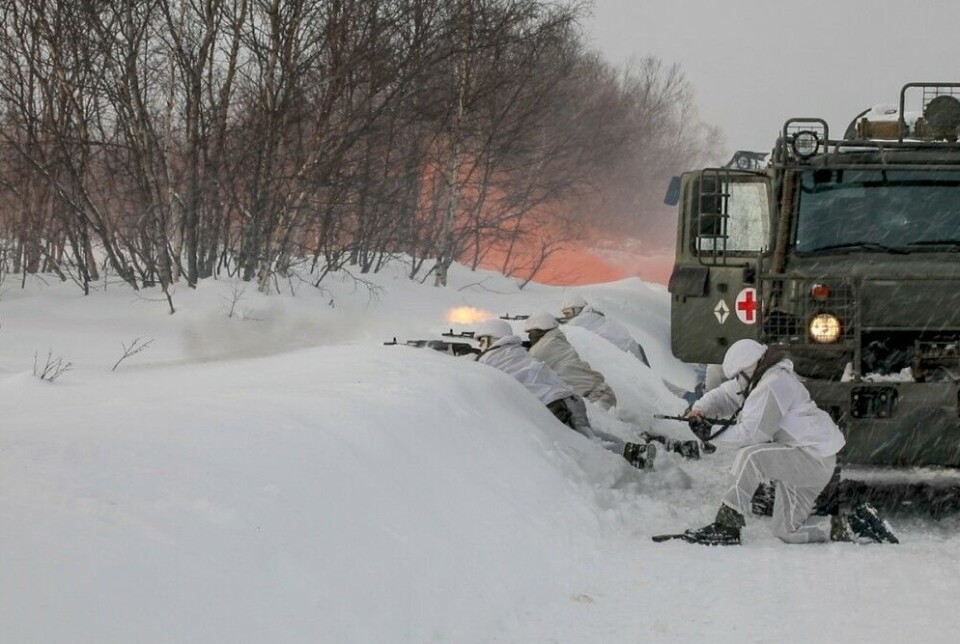
Finnish military intelligence:
Kola and in Karelia likely to get tens of thousands of new soldiers
Russia's barbaric war in Ukraine is draining resources, but Leningrad Military District will in the longer run significantly expand its troops near the border with Finland and Norway.
Thousands of soldiers from the three brigades inside the Arctic Circle, near the border with NATO, are killed or wounded on the battlefields in northern and eastern Ukraine over the last three years.
In its recently published bi-annual open assessment report, the Finnish Military Intelligence, however, warns about how Russia's ongoing massive military reforms will pose a threat to Finland.
Moscow's goal is to increase the size of the armed forces with 350,000 new soldiers, of which as many as 50,000 will be serving in the Leningrad Military District close to Finland, bringing the total number of soldiers up from 30,000 today to 80,000 within some years.
The intelligence service believes that will not be possible before the war against Ukraine is over as Russia today sends all new recruited soldiers more or less directly to the frontline.
In the Kola region (Murmansk Oblast), the Northern Fleet's 14th army corps will be expanded into a full army. A completely new army corps will be established in Karelia and several brigades will be expanded in divisions, the report informs.
The three northernmost brigades are the 200th Motorised Rifle Brigade, the 61st Naval Infantry Brigade and the 80th Motorised Infantry Brigade. While the two first are in Pechenga district a few kilometers from Norway, the latter is in Alakurtti not far from Finland's Salla border check-point in Lapland.
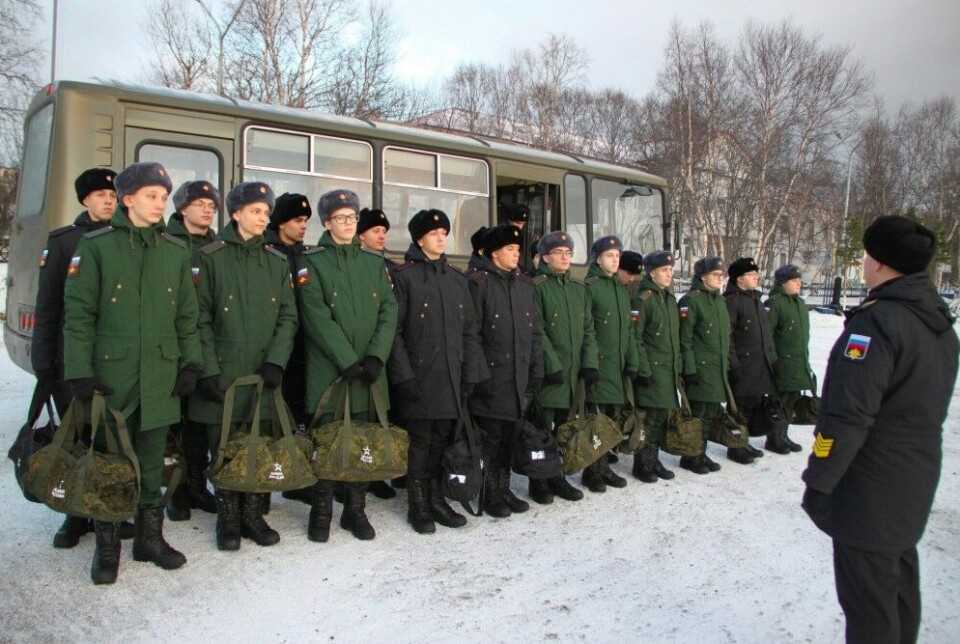
The 44th Army Corps is today the only unit in Karelia, but this ground forces in the republic will be significantly strengthened under the current reforms, which Moscow previously said is a result of Finland joining NATO.
"After the war in Ukraine ends, Russia will likely prioritise its north-western direction and try to speed up the implementation of the reforms." the intelligence report says.
Finland makes clear that there are "no possibilities for improvement" in the current situation as Russia’s strategic interests are in "irreconcilable conflict with the West."
The strengthening of the army with tens of thousand of new soldiers comes in addition to the ongoing modernisation of the navy with new submarines, surface warships and aviation based on the Kola Peninsula.
The intelligence service estimates that regardless of the outcome of the war in Ukraine, the High North will maintain its strategic significance for Russia. Free use of the Arctic sea areas is a critical factor for Russia’s nuclear deterrent.
Next February, the New START agreement expires. The bilateral U.S. - Russia treaty limits the numbers of deployed nuclear warheads to 1,550 on each side.

